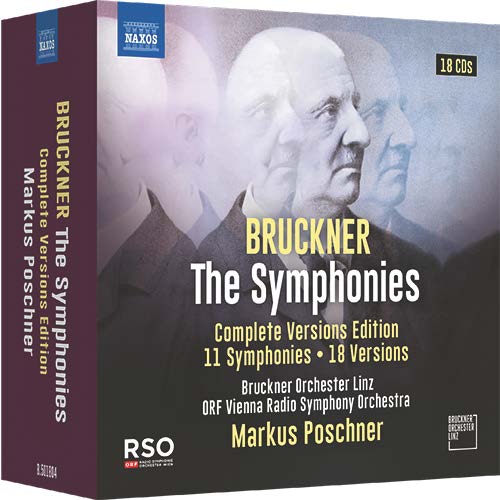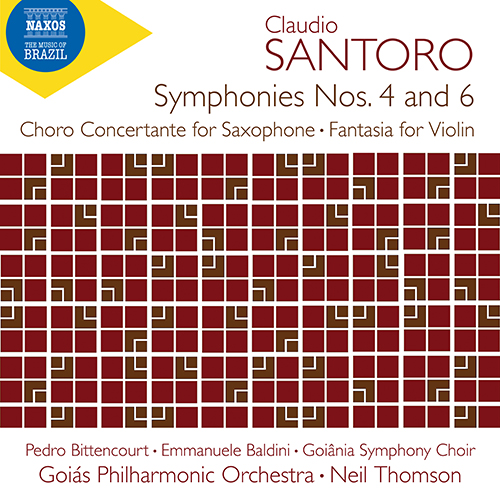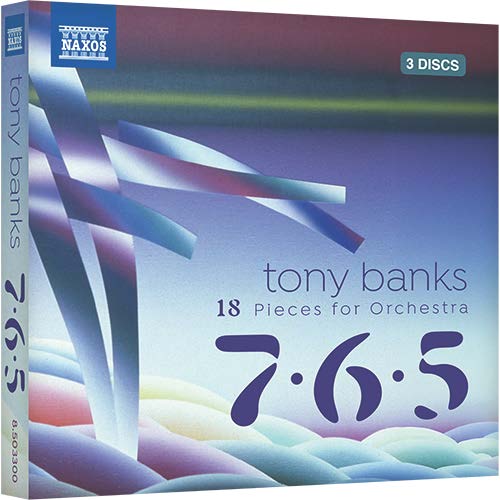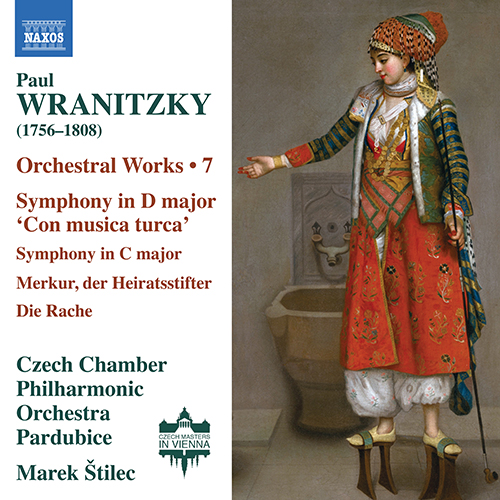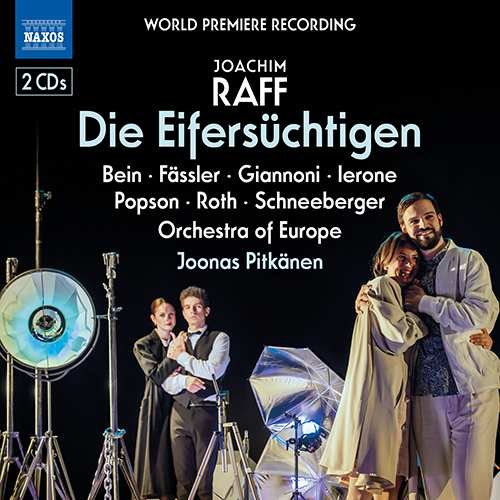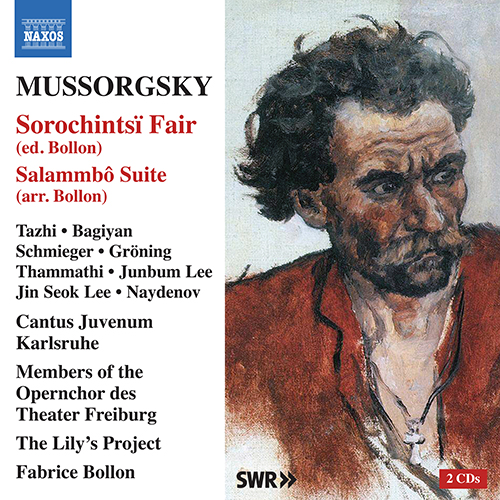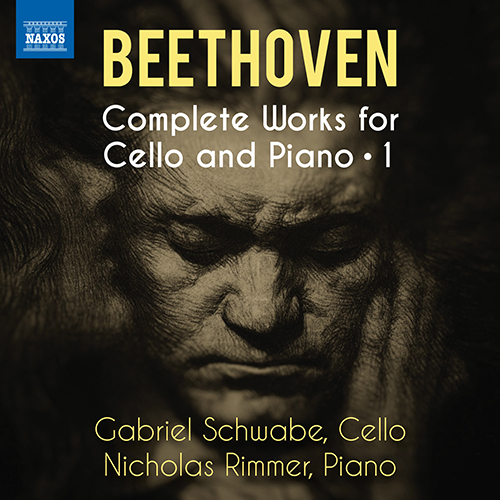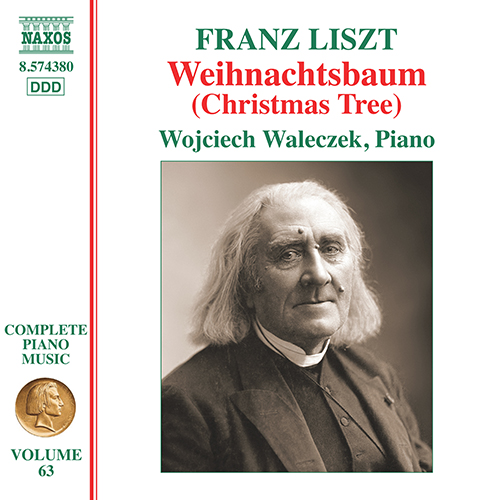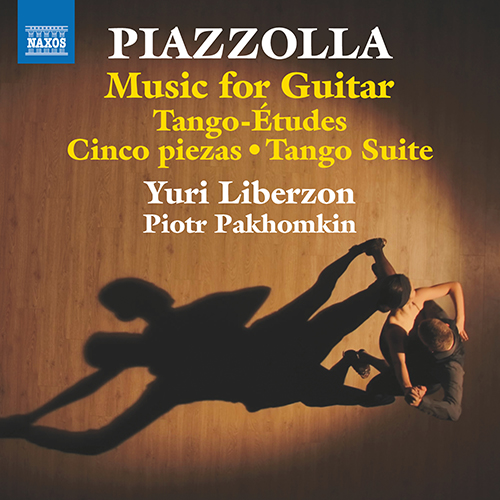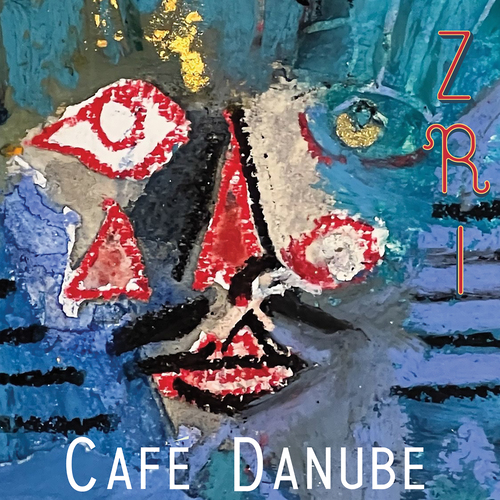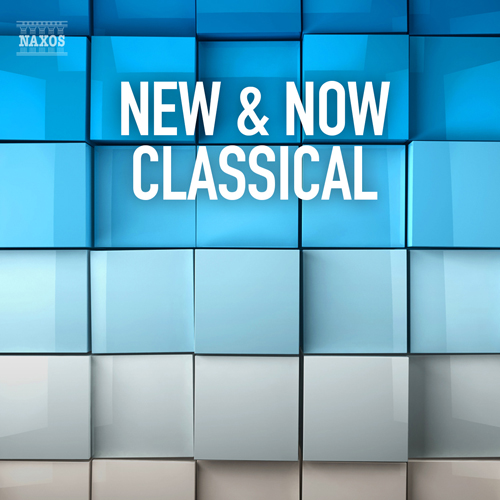The September NEW ON NAXOS highlights the release of Anton Bruckner’s Complete Symphonies, bringing together on 18 discs all the versions identified as having significant revisions and changes in the authoritative New Anton Bruckner Complete Edition. This cycle was recorded with Markus Poschner conducting the Bruckner Orchester Linz and the ORF Vienna Radio Symphony Orchestra. The series won an ICMA 2024 Special Achievement Award: ‘It combines musicological research with artistic excellence, while bringing together Austria’s leading musical institutions. In short, the sound of Bruckner, yet innovative too’ (International Classical Music Awards).
Other highlights include Joachim Raff’s opera Die Eifersüchtigen (‘The Jealous Ones’) presented by the Orchestra of Europe under award-winning conductor Joonas Pitkänen; the first volume of Beethoven’s Complete Works for Cello and Piano presented by the esteemed cellist Gabriel Schwabe and pianist Nicholas Rimmer; and more.
![]() Watch our monthly New on Naxos video to sample the highlighted releases of the month.
Watch our monthly New on Naxos video to sample the highlighted releases of the month.

Markus Poschner’s acclaimed recordings of Bruckner’s symphonies bring together the versions identified as having significant revisions and changes in the authoritative New Anton Bruckner Complete Edition. It reflects the latest research and the most up-to-date editorial criteria, making this 18-CD set the definitive Bruckner symphonies cycle. From the embryonic ‘Student Symphony’ in F minor to the glorious but incomplete Ninth, these are works filled with endless fascination and profound depths of emotion, revealing a composer solidly grounded in Austrian tradition while simultaneously looking towards infinity.
The fourth volume in this series explores a pivotal decade in Claudio Santoro’s compositions. In the 1950s he moved from serialism towards nationalism starting with the transitional, reflective Canto de Amor e Paz (‘Song of Love and Peace’) and continuing with Symphony No. 4 which proved to be one of his most accessible and influential works. His Symphony No. 6 of 1958 is short but original, luminous and sombre by turns. The concertante works for saxophone and violin show Santoro’s command of dance rhythms, colourful lyricism and virtuosity.
Czech National Symphony Choir and Orchestra • The City of Prague Philharmonic Orchestra • London Philharmonic Orchestra
Dixon • Englishby • Ingman
Famous for his role as the keyboard player in rock band Genesis and as a solo artist, Tony Banks was always fascinated by the idea of writing orchestral music. His success in composing for films led to the acclaimed Seven – A Suite for Orchestra. The intense orchestral sound pictures in Seven, Six and Five rank among some of Banks’s most accomplished recordings, marrying experimentation with form and structure, and a trademark melodic character which powerfully conveys both melancholy and joy.
WORLD PREMIERE RECORDINGS
Paul Wranitzky, Mozart’s masonic brother, was a favourite composer of the Viennese court for which he wrote exclusive compositions. Wranitzky was a characterful composer with a masterful sense of orchestration, but his sudden death in 1808 saw his legacy overshadowed by his contemporaries Mozart, Haydn and Beethoven. The composer’s mature Symphony in C major is a fine example of his abilities, and the finale of the Symphony in D major bursts into life in fine Janissary style, complete with triangle, cymbals and Turkish drum.
Orchestra of Europe • Pitkänen
WORLD PREMIERE RECORDINGS
Raff completed the score of Die Eifersüchtigen (‘The Jealous Ones’) a few weeks before his death. He wrote the libretto himself and was scrupulous in differentiating his characters through their music and adopting a precise formal construction. With tight organisational control, a strong grasp of musical and dramatic relationships, and speech melodies based entirely on German prosody, Raff’s final opera is marked by clarity, concision and economy of means.
Junbum Lee * • Thammathi * • Gröning *
Naydenov * • Jin Seok Lee * • Tazhi *
Cantus Juvenum Karlsruhe *
Members of the Opernchor des Theater Freiburg *
The Lily’s Project * **
Bollon * **
WORLD PREMIERE RECORDINGS
Modest Mussorgsky’s operatic output is dominated by the epic Boris Godunov and Khovanshchina, but of his notable unfinished works Sorochintsï Fair is the most prominent example. Based on a story by Gogol, this is a comic opera in which amorous encounters intermingle with a devil’s curse. This chamber orchestra version by Fabrice Bollon uses only original music by Mussorgsky unlike other completions. Potentially a compelling and original drama, Salammbô was Mussorgsky’s first attempt at an opera, praised by Rimsky-Korsakov for the ‘beauty of its themes and ideas’.
Intent on developing the reputation he had won in Vienna, Beethoven undertook an extensive tour ending in Berlin, home to the celloplaying Frederick William II. There he unveiled his Sonatas for Piano and Cello, Op. 5 with one of the famed Duport brothers playing cello. These are revolutionary works, with neither instrument subservient and the piano fully independent, for which in the 1790s there was no precedent. Beethoven also wrote vivacious variations on operatic music by Mozart where light-hearted playfulness and dramatic rivalry are energising features.
The piano pieces Franz Liszt composed in his final decade are both secular and sacred with a startling originality that is far removed from the virtuoso character of his earlier works. Weihnachtsbaum is an all-embracing impression of Christmas that includes traditional carols alongside childhood and adult views of the season. The dark chromaticism of Die Trauergondel II is a tribute to Wagner, contrasting with the brighter range and yearning lyrical lines of the Wiegenlied. Many of these works remained unpublished in Liszt’s lifetime, and are genuine rarities even today.
INCLUDES A WORLD PREMIERE RECORDING
Astor Piazzolla’s introduction of new rhythms and harmonies into the tango won him worldwide fame. Tango Suite, for two guitars, is one of the finest duo works in the repertoire, offering fireworks and percussive effects as well as exquisite melancholy. Yuri Liberzon has arranged the much-loved Oblivion for guitar, while Leo Brouwer’s arrangement of La muerte del ángel is full of vivacity and colour. Cinco piezas was Piazzolla’s first work for classical guitar and embraces peasant dances and complex cross-rhythms alike; the Tango-Études, originally for flute, shows the guitar’s range and versatility in Manuel Barrueco’s idiomatic arrangement.
In Café Danube, ZRI celebrate classics of the 19th century from Vienna to Odessa, stylishly reimagined with a Romani twist. Featuring music by Herren Rossini, Strauss, Schubert, Mozart, Brahms, Satie and more…
The New & Now playlist features all that is new and exciting in the world of classical music, whether it’s new music, new presentations or new performers. With more than 200 new releases each year, and artists from around the world, there is always something new to discover with Naxos.
































